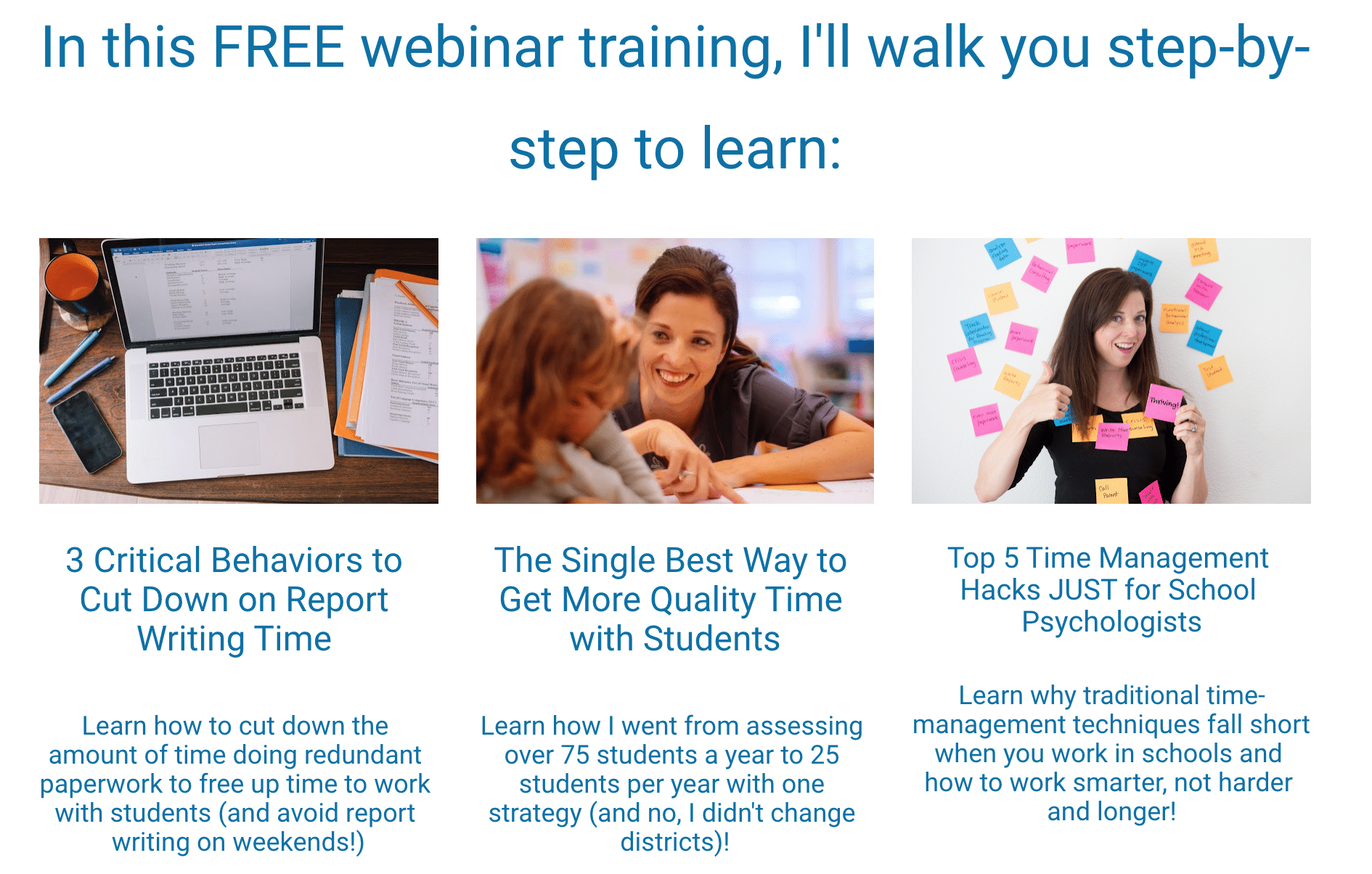Don’t you just love break? It’s so great…you can just sit back with your friends and family for a nice meal, and then cozy up with Netflix or a good book and then….
[record scratching]
Sometimes thoughts of work and how many reports you have to write when you get back from break can creep into your holiday!
So, as a school psychologist myself, I get the problem. We can often let work creep into our break time, right? And then we try to play it a bunch of different ways. So I’ve been at this for about 20 years, and sometimes I would bring home work to “just get ahead,” and then I’d get ahead but then I’d feel resentful and wouldn’t feel rested. Or sometimes I would bring work home, and then I’d feel stressed and wish I had done just one or two reports to catch up to save my January from being really tough.
Either way, I wasn’t enjoying my break, because it was full of guilt or resentment for deciding to work, or full of worry for the consequences of not working.
It’s really hard to find that balance between break, and rest, and relaxation, and making sure you don’t fall behind, right? It’s taken me a long time to figure it out, but the solution is not willpower or making the “right” choice. It’s more complex than just saying to yourself, “I’m just definitely not going to work on my break” or “I’m definitely going to work on my break and get caught up.” It’s not even about that.
It’s about cultivating a different mindset toward rest and honing a different strategy before you are sitting in your car trying to make a decision about whether or not to lug a bunch a files home.
One thing that I teach in The Thriving School Psychologist Collective is about organizational systems that prevent you bringing unpaid work home.
The good news is, the end of the first semester is not too late to figure out an organizational system that will help you keep work at work (physically AND mentally).
You can always hit the organizational reboot button! So, if you’re shiny, fancy planner from August is now crumpled up and scrawled all over, or you can’t even see any white space on your Google cal, I get it. That’s what happens. And that’s a systems issue.
So, what can we do within the existing school system we’re in–one in which we often we have too many cases, two many assessments and not enough time?
You can create systems to help with the problem of your break being consumed by work or thoughts of work. I’ve seen hundreds of school psychologists do it. And it starts with 3 critical behaviors, one key mindset shift, and 5 time-management strategies, which I teach in my free webinar: “The Four Pillars of a Thriving School Psychologist.” (Some of you may have taken it before, and it’s always good to get a professional reboot as well to get re-inspired and to kind of New Year’s Resolutions around figuring out how to keep work at work!).
If you haven’t seen it yet, there’s three things that I’m going to teach in this webinar that are really practical, and they’re tried and tested by school psychologists across the country who have taken my online course. In this hour-long webinar, you will learn:
- The 3 critical behaviors to cut down on report-writing time so that you aren’t ruining your break with work.
- The single best way to get more quality time with students so you can see kids and not just their paperwork (and keep work at work!).
- The top five time management hacks for school psychologists (because traditional time management doesn’t always apply in school psychology)
I would love to teach these strategies to you and it’s totally freeeeeeeee! Sign up by clicking the orange button or this link, and I will love to see you there!
Don’t let work creep into your break. Or if you must, take an hour to watch the free webinar to see how you can prevent “work creep” in the New Year. Let’s work this problem together, so that we can keep work at work, and we can enjoy our weekends and holiday breaks. I look forward to seeing you in the webinar!
Available for a limited time…sign up now!
Dr. Rebecca Branstetter is a school psychologist, speaker, and author on a mission to help public school psychologists manage their stress, improve their efficacy and enjoyment in their work, and prevent getting burned out so they can focus on what they love to do—being champions for helping children be the best they can be in school and in life and supporting educators and families.

